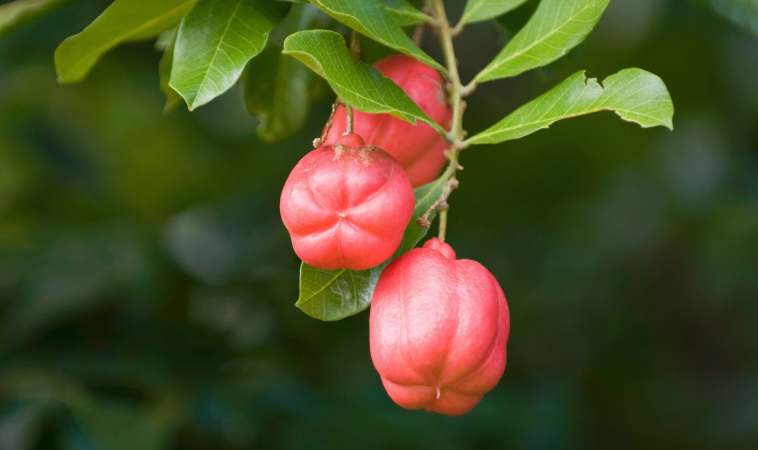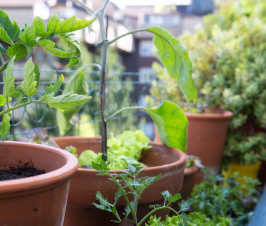It’s true that many plants provide an abundance of nutrients, typically at a fraction of the energy expended to raise animal protein. However, before embarking on a wholesale change in diet, it’s worth considering the research and experience of a trio of neurotoxicologists at Oregon Health & Science University.
Toxic Compounds in Plants Affecting Undernourished People Around the World
Their message: Not all plants are good for you.
That’s particularly true for those who are undernourished or depend on a single plant. But the scientists caution that growing interest in foraging for wild edibles raises the risk for people in wealthy countries, too, especially as some plants may become more toxic with a changing climate.
The bottom line
“The bottom line is that plants and fungi were not put here for our benefit — they need to defend themselves,” said Peter Spencer, professor of neurology in the OHSU School of Medicine and an affiliated faculty member of the Oregon Institute of Occupational Health Sciences at OHSU. “They have all sorts of chemical defense systems that would make the Department of Defense blush with embarrassment at their former efforts.”
OHSU scientists highlighted plants with neurotoxic potential in undernourished people
In a recent review published in the journal Environmental Neurology, OHSU scientists highlighted plants with neurotoxic potential in undernourished people around the world. The study was jointly authored by Spencer along with first author Valerie Palmer, instructor of neurology, and Desiré Tshala-Katumbay, professor of neurology in the OHSU School of Medicine.
In it, the scientists catalogue a quartet of plants that sicken or kill undernourished people around the globe.
“The adverse neurological effects of food dependency on plant components with toxic potential constitutes a significant global health issue,” they write.
Researchers cataloged the potential neurotoxic effects of fruit of the ackee tree
The researchers cataloged the potential neurotoxic effects of fruit of the ackee tree, an evergreen native to west Africa and favorite of Jamaica; lychee fruit, a delicious tropical fruit from southern Asia now eaten worldwide; grasspea, a protein-rich legume eaten on the Indian continent and the Horn of Africa; and cassava, a plant whose roots and leaves are consumed in across sub-Sahara.
Although these plants provide food for millions, the scientists elucidate ways in which they can rapidly and fatally affect brain function or, in the case of cassava and grasspea, gradually induce crippling disease. Critical is the amount of plant products consumed; the poor health of the people eating it; and the relative availability of each of these plants due to poverty, hunger and, increasingly, climate change.
Cassava is a prime example
Many people in Africa rely on cassava as a primary food source because it grows well in arid soils. But when stressed by drought, the concentration of its chemical defenses increase at the same time water to wash out the toxic factors is in short supply. Those dependent on cassava develop an irreversible struggle to walk.
Tshala-Katumbay, who fondly remembers eating the cassava root as a child growing up in the Democratic Republic of Congo, has spent the past two decades working with local communities in the DRC to reduce exposure to the plant’s toxins. Although cassava’s toxicity can be reduced through careful methods of food preparation, high levels of consumption make it difficult to eliminate the risk altogether.
“Even if it’s a low-dose toxicant, cumulative exposure may have long-term effects,” Tshala-Katumbay said.
Grasspea
Palmer and Spencer focused decades of their research in the field and laboratory on grasspea, a tasty legume that also causes tremor, muscle weakness and even paralysis in those who depend upon it for sustenance. Before the internet, Palmer formed a worldwide group of scientists with a wide range of expertise including botany, biology and chemistry to develop low-toxin strains of this valuable, environmentally tolerant legume.
Unfortunately, Palmer said, people may well become increasingly exposed to potentially toxic plants as the climate warms and the global population expands, especially in low-income countries.
“This is very concerning, particularly because many people are going to need to rely on these crops in the future,” she said.
OHSU researchers are working to improve human health in developing countries
As they focus on neurotoxins around the world, OHSU researchers are working to improve human health in developing countries while also advancing scientific understanding about neurotoxins affecting people even in wealthy nations like the United States. For all the effort spent in unveiling the human genome, Spencer believes the “exposome” — the food we eat, the air we breathe, the chemicals we are unwittingly exposed to — is every bit as important in determining human health and preventing disease.
“Prevention of brain disease is our principal goal — seeking and understanding the chemical causes of disease and minimizing human exposure,” Spencer said.
Source:
- V.S. Palmer, D.D. Tshala-Katumbay, P.S. Spencer. Plants with neurotoxic potential in undernourished subjects. Revue Neurologique, 2019; DOI: 10.1016/j.neurol.2019.07.015
 Razi Berry is the founder and publisher of the journal Naturopathic Doctor News & Review, which has been in print since 2005, and the premier consumer-faced website of naturopathic medicine, NaturalPath. She is the host of The Natural Cancer Prevention Summit and The Heart Revolution-Heal, Empower and Follow Your Heart, and the popular 10 week Sugar Free Summer program. From a near death experience as a young girl that healed her failing heart, to later overcoming infertility and Chronic Fatigue Syndrome and Fibromyalgia through naturopathic medicine, Razi has lived the mind/body healing paradigm. Her projects uniquely capture the tradition and philosophy of naturopathy: The healing power of nature, the vital life force in every living thing and the undeniable role that science and mind/body medicine have in creating health and overcoming dis-ease. Follow Razi on social media: Find her on Facebook at Razi Berry, on Instagram at Razi.Berry, join her Love is Medicine group to explore the convergence of love and health, and find more Love is Medicine podcast episodes here.
Razi Berry is the founder and publisher of the journal Naturopathic Doctor News & Review, which has been in print since 2005, and the premier consumer-faced website of naturopathic medicine, NaturalPath. She is the host of The Natural Cancer Prevention Summit and The Heart Revolution-Heal, Empower and Follow Your Heart, and the popular 10 week Sugar Free Summer program. From a near death experience as a young girl that healed her failing heart, to later overcoming infertility and Chronic Fatigue Syndrome and Fibromyalgia through naturopathic medicine, Razi has lived the mind/body healing paradigm. Her projects uniquely capture the tradition and philosophy of naturopathy: The healing power of nature, the vital life force in every living thing and the undeniable role that science and mind/body medicine have in creating health and overcoming dis-ease. Follow Razi on social media: Find her on Facebook at Razi Berry, on Instagram at Razi.Berry, join her Love is Medicine group to explore the convergence of love and health, and find more Love is Medicine podcast episodes here.

















